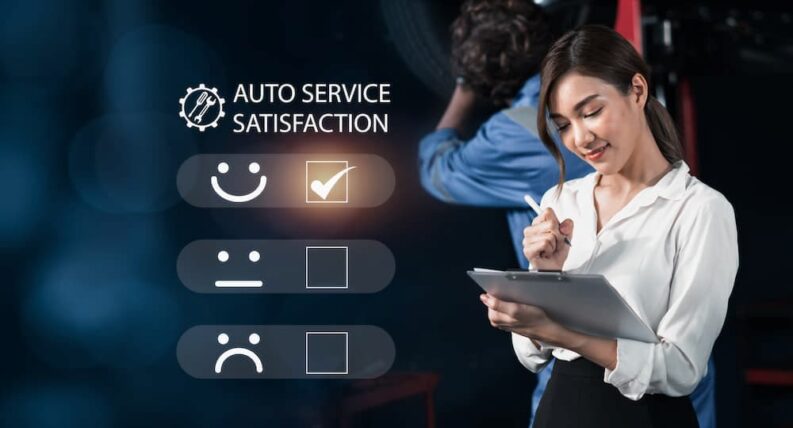Keeping your Chevy tuned is essential to extending its longevity and getting the most out of your vehicle beyond the basic warranty cut-off date. Oftentimes, when you want the absolute best for the vehicle, you will aim to get a complete tune-up, especially if there are several nagging issues or you want more than just a basic oil change and filter replacement. If you’ve wondered, “What should a full tune-up Chevy service near me include?” then your best bet is to find a dedicated Chevrolet dealership with its own service center—and your second best bet would be to keep reading.
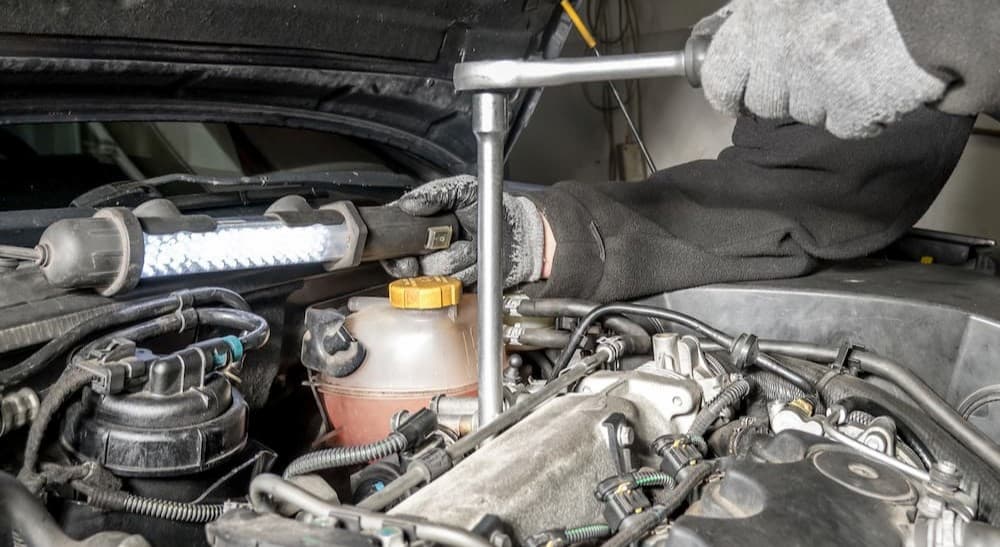
What Does a Full Tune-Up Consist Of?
A full tune-up is basically a collection of maintenance services for your vehicle, all done at the same time. While you might get the battery charged at one point or the tires rotated and inflated at another, a full tune-up consists of checking all of your vehicle’s vital components and basic replaceable parts and giving them an inspection, adjustment, or replacement when necessary. This includes many of the basics as well as a few things you may not realize.
A full tune-up initially consists of a full inspection and a routine maintenance check of all the essential components. This covers many of the basic functional elements of the vehicle, usually indicated in the vehicle’s owner’s manual. Technicians will go through the process of checking and ensuring that the fluid levels are correct, the electrical components are operational, and all mechanical elements are working as intended.
The inspection will guarantee that the fluid levels are where they should be, the battery is at the appropriate charge capacity, and all the hoses and filters are fixed and functioning. Additionally, basic checks on caps, nozzles, and plugs are inspected and tested, along with emission tests if you have a combustion engine. Technicians are using this time to look for faults requiring more intensive service or repair.
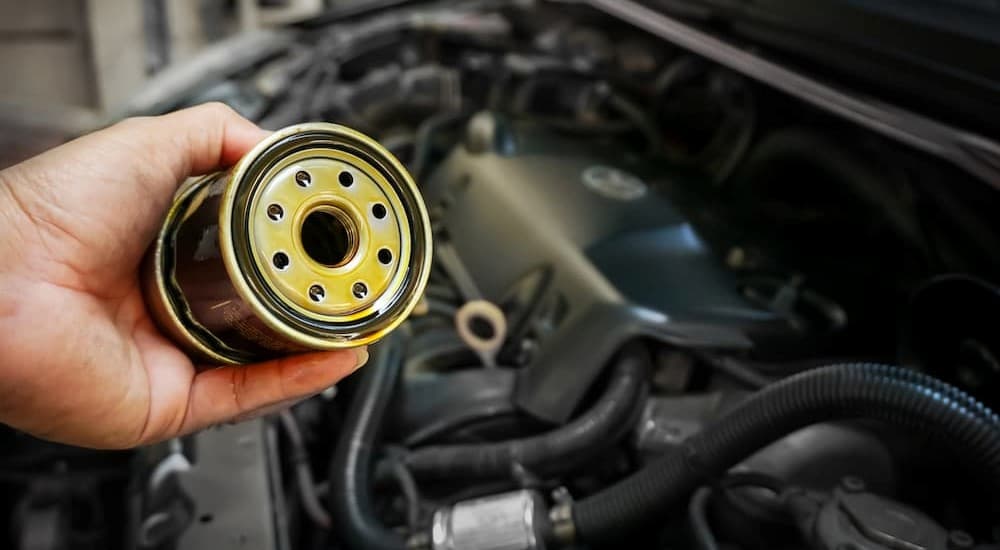
What Else Is Serviced?
Getting a full tune-up doesn’t always include replacing or servicing components, but when it does happen, it’s usually a list of the essential elements necessary to keep the fundamental functionality of your vehicle in check and guarantee that your vehicle operates safely and efficiently on the road. Depending on the make, model, and mileage, this will also entail servicing for certain additional components.
However, a full tune-up may often see some basic parts being refreshed or replaced, such as the cabin and engine filters, worn-out spark plugs, or an ignition coil. If it’s been through several thousand miles worth of wear, you’re almost guaranteed to see the oil checked and changed and the oil filter replaced.
The throttle body is another important piece of equipment that may get inspected during a full tune-up. This allows air into the engine, and it is a vital component for the engine’s operation. The build-up of grime, dust, dirt, or other particulate matter can cause issues with the throttle body, so ensuring it is clean and functioning is something that a full tune-up would address. Engine timing, electrical responses, alignment, and hose checks are also commonly inspected during a full tune-up.
Inspecting these parts doesn’t always mean that these parts have to be replaced or fixed. A full tune-up goes through all of the basics of a vehicle’s mechanical and electrical functionality and ensures that everything is up to par. If it’s not, then replacements and maintenance are required. Some vehicles may require more service or maintenance during a full tune-up than others; essentially, it’s just a checklist to ensure that every important part of the vehicle is functioning as intended.
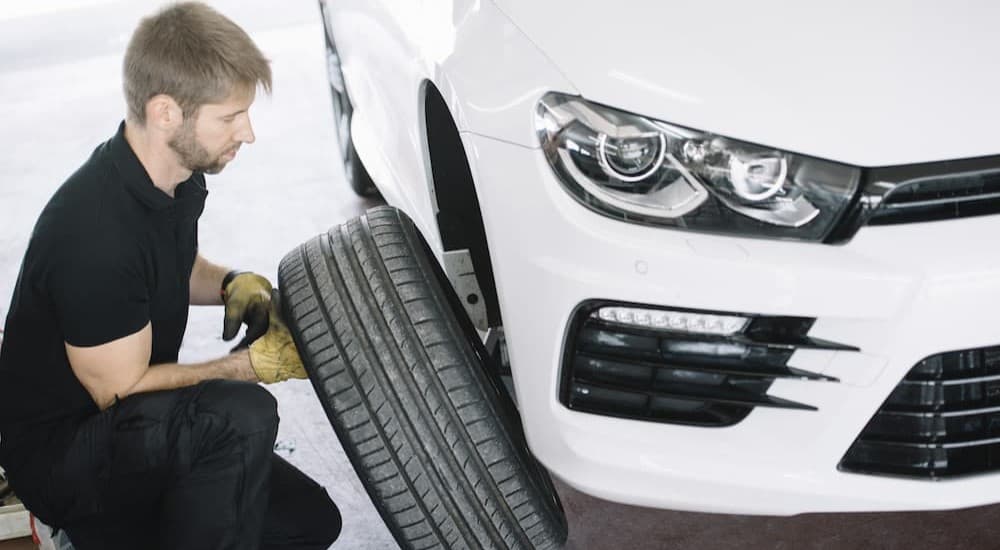
When Should I Get a Full Tune-Up?
Your vehicle’s owner’s manual will recommend the appropriate intervals between full tune-ups; this will vary between make and model—and not every model year requires the same kind of maintenance, and not every trim for that model year may require the same degree of maintenance, or it may require more. Scheduled service is dependent on what’s required for that specific vehicle.
For instance, a 2010 Chevy Malibu has a completely different maintenance schedule and full tune-up requirement than a 2019 Chevy Silverado 1500 Trail Boss. This is because the Chevy Malibu serves a very different functional purpose than a Silverado 1500; weight class, usage, and wear all contribute to how often a full tune-up is required and what needs doing during that tune-up. A Silverado 1500 Trail Boss may undergo usage that a Chevy Malibu would never see. Depending on how a vehicle is driven can determine what sort of mechanical failure or wear is put on specific components. Thus, there are checks for the transfer case, transfer case fluid, filters, transmission, and suspension during a full tune-up of a Silverado Trail Boss that you wouldn’t see on a Malibu.
For some vehicles, the basic tune-up schedule may range between every 5,000 miles (or every three months) to every 10,000 miles (or every six months); it all depends on the wear and tear put on the vehicle. The more wear and tear, the sooner a full tune-up should be scheduled at a dedicated Chevy service center near you. If you don’t put as much wear or tear on your vehicle, then you can go slightly longer without a full tune-up. Once again, always check your owner’s manual to make sure you get the vehicle serviced based on the suggested mileage or time frame.
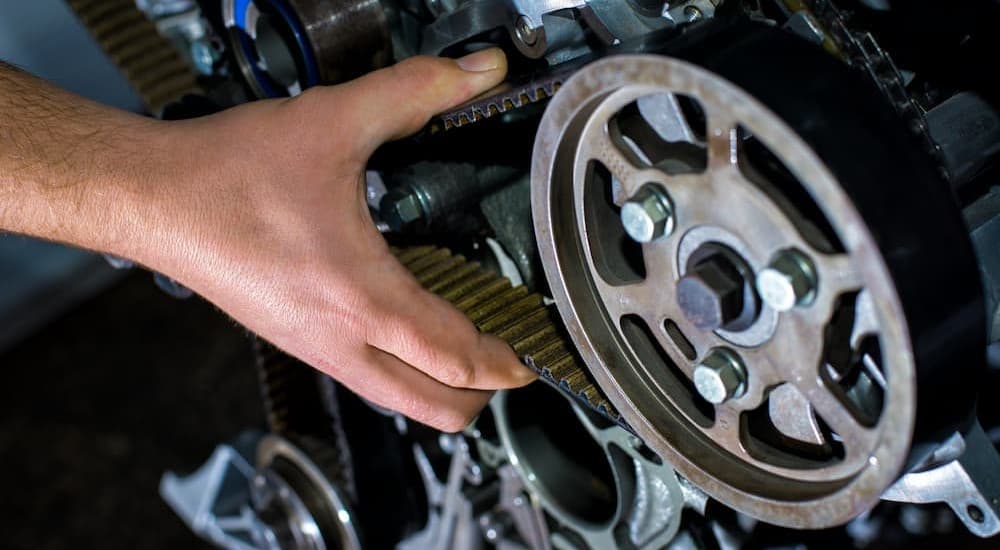
Do I Need a Full Tune-Up?
Getting a regular full tune-up depends a lot on how you drive, how much you drive, and what you drive. However, getting a full tune-up is still essential maintenance required to keep your vehicle running smoothly and as intended, and it is typically done at a fully-featured service center. Keep in mind that not every mechanic will offer a full-service tune-up for your particular Chevy, so it’s important to find a technician capable of performing a full tune-up on your particular vehicle as opposed to merely changing the oil.
If you’re a gearhead who regularly maintains your own vehicle—changing the oil, filters, and spark plugs and checking the constitution of the hoses, lines, and pumps—then you probably won’t feel as inclined to get a full-service tune-up as often. However, a lot of people don’t have time to dedicate to the minutiae required to keep their vehicle running at its best, so a full tune-up by a dedicated service center is highly suggested. This will give you an idea of how well your vehicle performs and what parts or features may require more attention than others.
Remember, not every Chevy is the same, so where you drive your vehicle and what sort of driving conditions or strain you subject it to will determine whether a regular full tune-up is essential or simply advantageous. Getting a full tune-up as indicated in your owner’s manual is always a good idea, especially for those aspects beyond the basics—the alignment, filter swaps, oil changes, etcetera—as it’s important to identify potential problems before they become big ones.
So, do you need a full tune-up? If you want to keep your vehicle running at its best, then absolutely.

